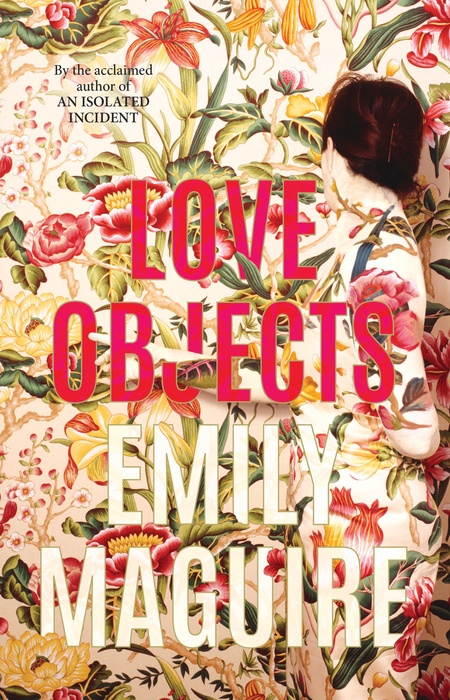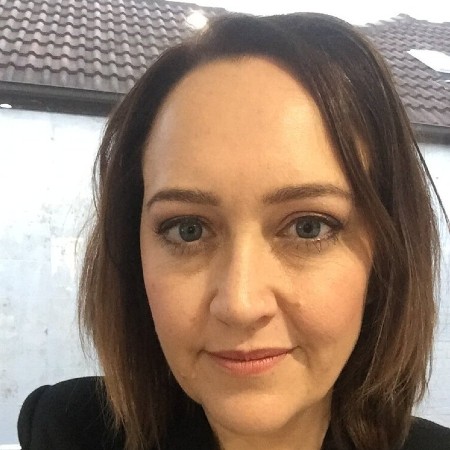How well do we really know those closest to us?
There’s an assumption in many families that because we share the same bonds, and often times, the same space, that we must implicitly know what’s going with those nearest and dearest to us; after all, family is the closest thing many of us have going on in our lives, right?
Well, that’s what we like to think.
The reality, as Emily Maguire arrestingly explores in her latest novel Love Objects, is that we may not know those around us as well as we think and that perhaps the bonds on which we rely so readily may not necessarily be able to bear the weight of surprise revelations or the steps taken to address them.
At least, in the short-term.
As Love Objects begins, we meet the first member of the family, a single middle-aged woman named Nic, who is wandering home from her shift at a discount retail store in Sydney where she has worked all her life and collecting the discarded detritus of people’s lives as she does so.
Objects are alive for Nic, imbued with the humanity of the person who once owned them and almost alive in the reassuring world of her vivid imagination, and sees it as her beauty to safeguard these items, to give them a safe harbour in a world that all too easily throws away valuable things and, by extension, valuable people.
“Nic was still unconscious on Monday morning. After three different nurses had told Lena to go home, she did, but only to pack a bag of toiletries, a week’s worth of undies and t-shirts, her phone charger and work uniform. She wanted desperately to call in sick, but she’d taken Friday off in order to fuck the worst person in the world and store policy demanded a doctor’s certificate for missing two shifts in a row. Besides, she couldn’t afford to lose another night’s pay.” (P. 69)
Nic has been collecting these castoffs for years, all of them, from the blouse she was wearing when she met and had sex with her first true love (later not so lovely after all) to a cheap tiara her mother bought on one of their rare excursions, full to the brim with meaning and a potent nostalgia that reassures her whenever she is introspective, that she was worth something once, that she had value.
Her sense of loss and emptiness, in a life largely walled-off from the world, is palpable, given physical form in a hoarder’s house long given over to the preservation of material items in favour of actually living a fulfilled life.
The only person Nic sees regularly is her niece Lena who is effectively like a daughter to her, as closes to parenthood as Nic will likely ever met and someone she feels she knows intimately and well.
But like Nic, Lena has fronts up and as she is playing dutiful niece, helping Nic to deal with some serious issues in her life that threaten the sanctity of her closed-off world in what the family house belonging to Nic and her sister Michelle’s mum, she is also dealing with a potent issue of her own.
The object of her uni infatuation, Josh, a rich kid whose life stands in marked and alluring contrast to Lena’s own “povvo” beginnings (and to be fair, present day reality in many respects) has slept with her which should be a good thing but it turns out that he filmed the whole thing and has disseminated the video across the vast and cruelly unfettered recesses of the internet.
It’s a huge burden for Lena to bear and she tries to handle it as best she can because her future as the best and the brightest in her family hinges on not losing her future to someone as duplicitous and nasty as Josh (his happy-go-lucky front hides a dismissively cruel man).
Into this world of unshared familial secrets comes Lena’s brother Will, fresh from a broken relationship, a lost job and pummelled by untreated tooth decay which is symbolic of a life which has little give in it and which certainly cannot afford the luxury of dental treatment.
He has returned to Sydney ostensibly to help Lena with Nic but the truth is he is trying to find a place to belong again and hopes it can be with his aunt and his sister.
Things, of course, aren’t as straightforward as he thinks and he soon discovers that while family might be near and dear to you, that doesn’t mean you really know them.
Love Objects, which takes fascinating and moving look at issues such as the #MeToo movement, class divides and familial schisms, knows all too well that what we think we know and see is often far removed from the actuality on the ground.
“It is a good thing she didn’t get the shoe, she [Nic] realises as they unload her from the ambulance. No matter how much she cared for it–and she would have, giving it pride of place on the TV cabinet, where its shine would be reflected by the trophies on either side–it wouldn’t be right. Shoes come in pairs and this one, when she thinks of it, looked more forlorn than fairy tale, there on the nature strip. Somewhere its mate lay just as sadly, waiting, waiting, waiting to be whole again.” (P. 268)
Maguire writes throughout this full and emotionally resonant book with an empathy and understanding of what it is like to know someone and not know someone at all but also with an appreciative honesty of what it might take to get that kind of intimacy back or arrive at it in the first place.
Love Objects is brutally honest at times, and doesn’t shy away from the cold, hard facts of life for many people whose options are limited by the enduring circumstances of their lives, whether created or imposed, and it doesn’t pretend that there is a magic switch that will fix everything.
While the ending is hopeful, that place is arrived at only after a great deal of struggle by all three major characters, all of whom are given a chance to speak to their hearts in a split-three-ways narrative that always feels as if it giving each person and their attendant issues a chance to be aired, heard and hopefully acted upon in some way.
At its heart though, Love Objects is about what it means to be connected to other people and that sometimes simply being part of a family is not enough to secure meaningful interactions with them or protect you from the worst that life can throw at you.
Sometimes, okay much of the time, getting to a place of really knowing someone takes the lowering of long-held barriers, a willingness to be open and honest come what may and a hope that maybe in so doing, you might find the kind of profound connection you have been seeking all your life and it might just make all the difference.

